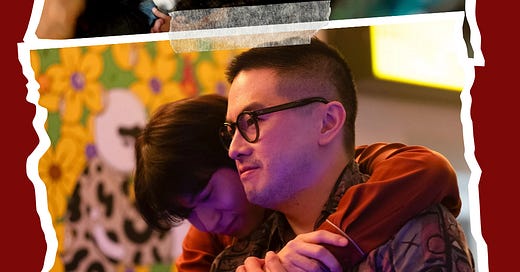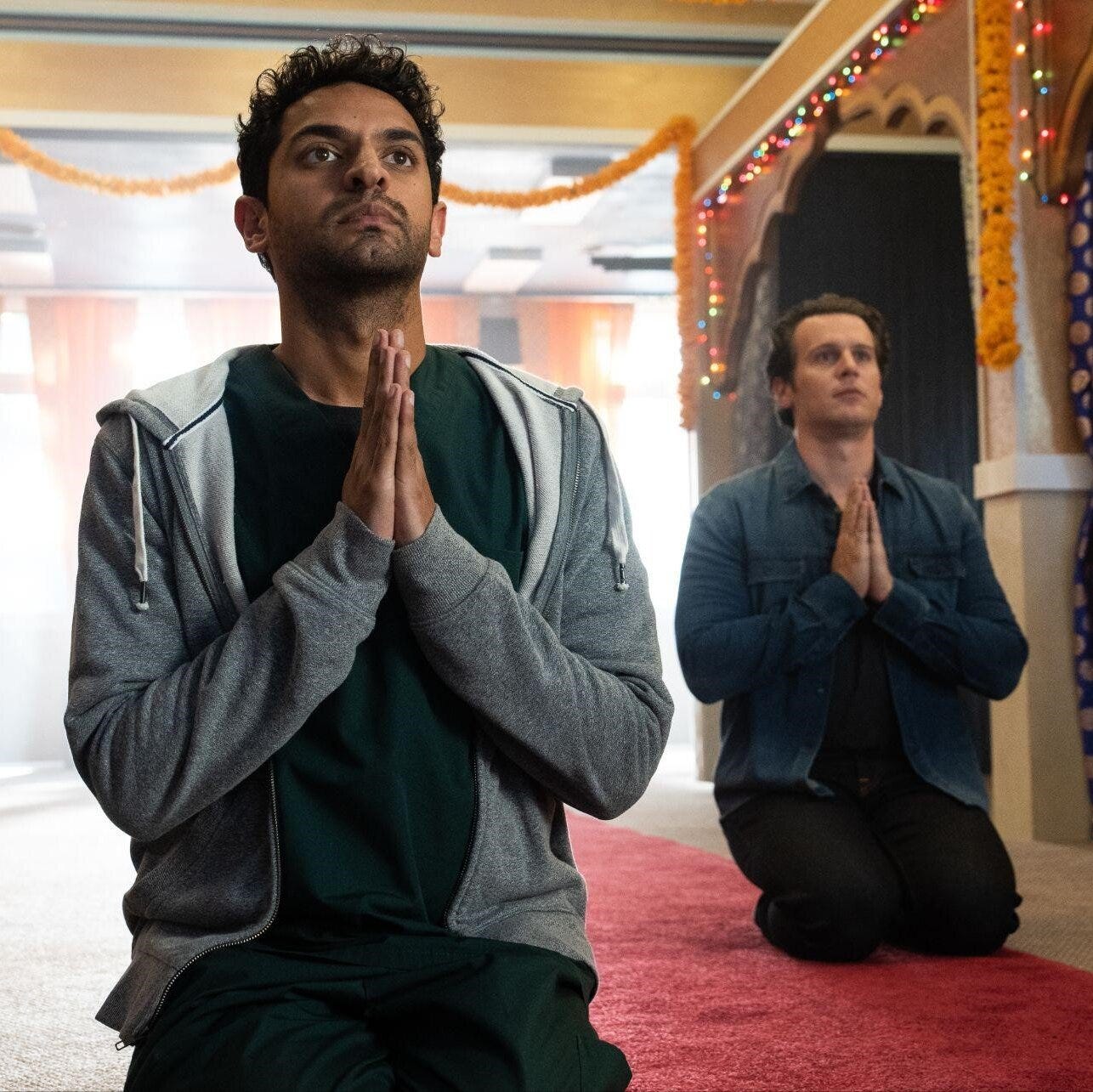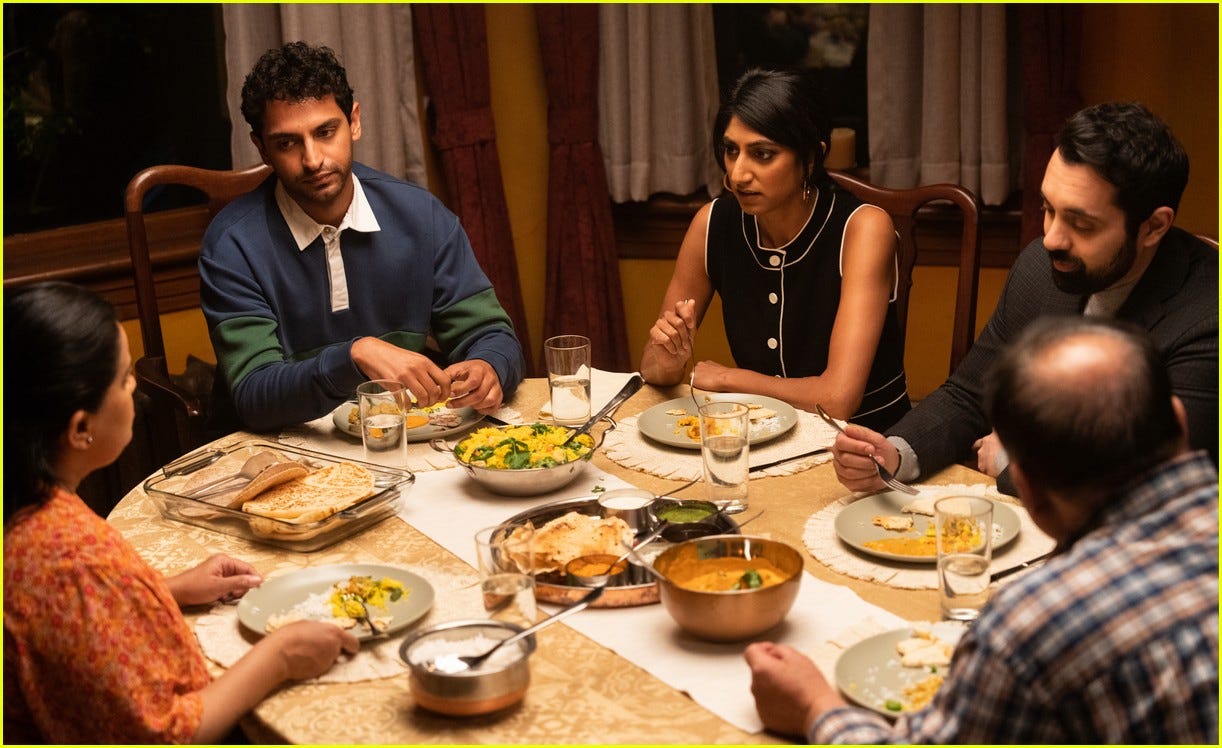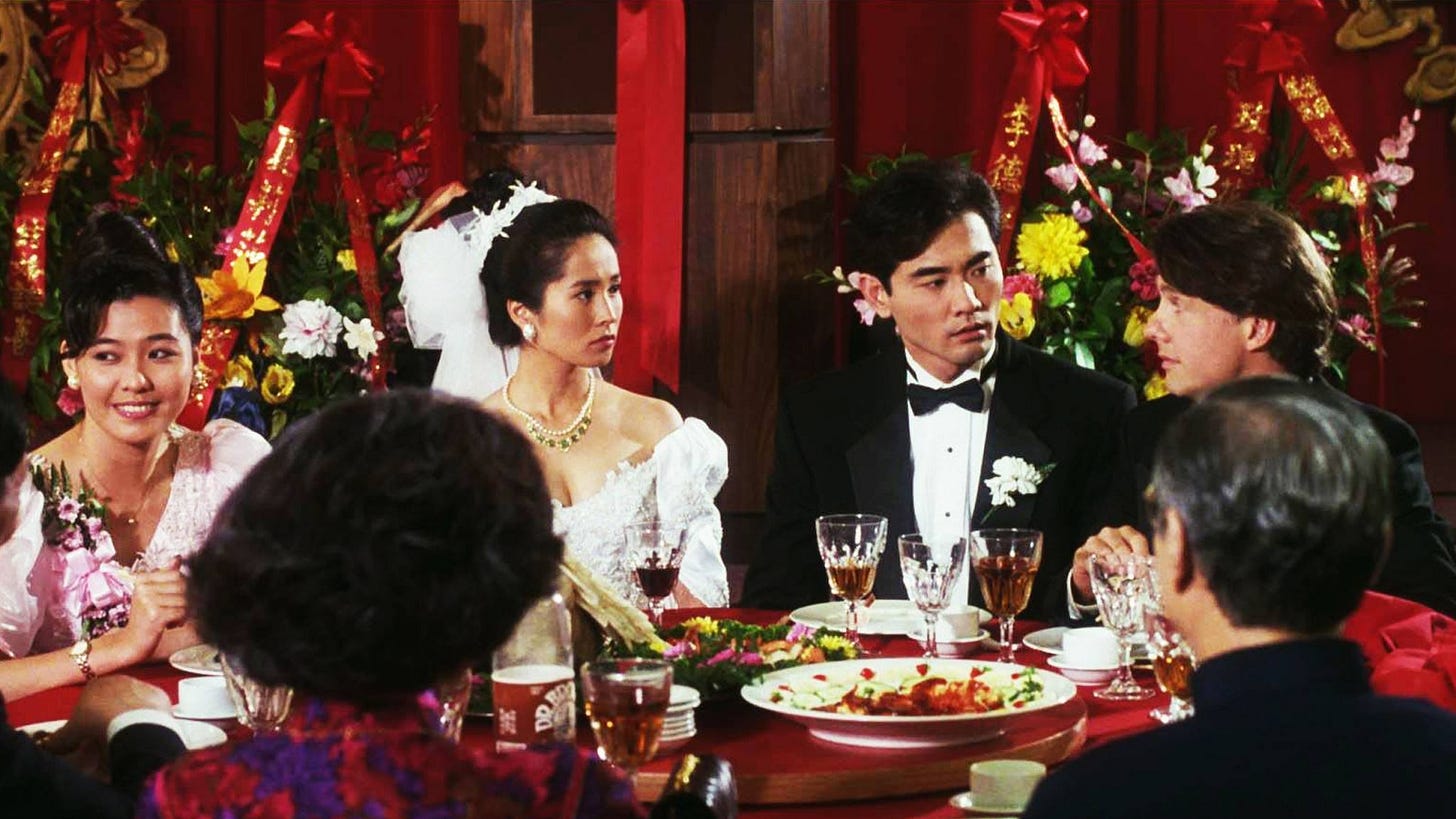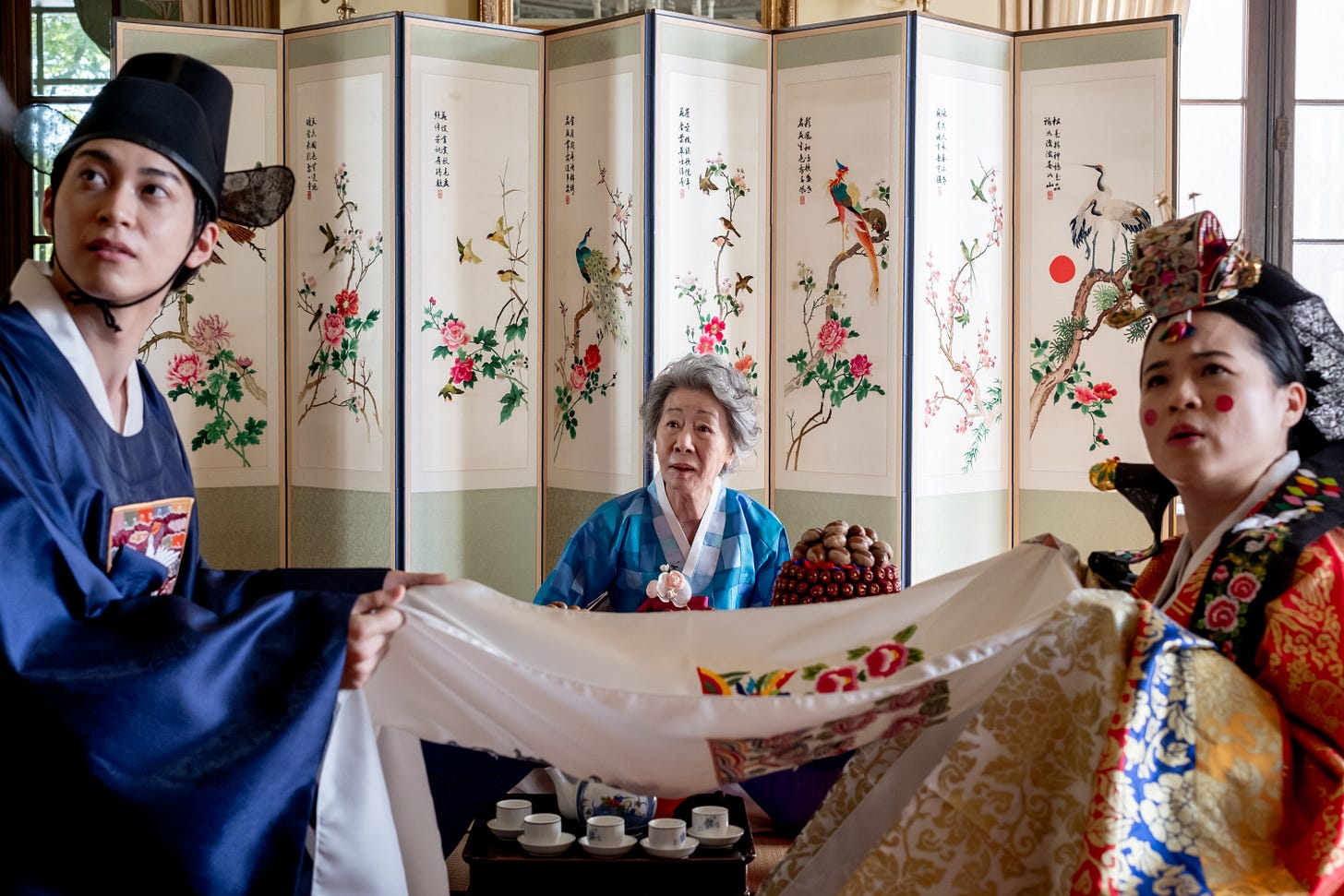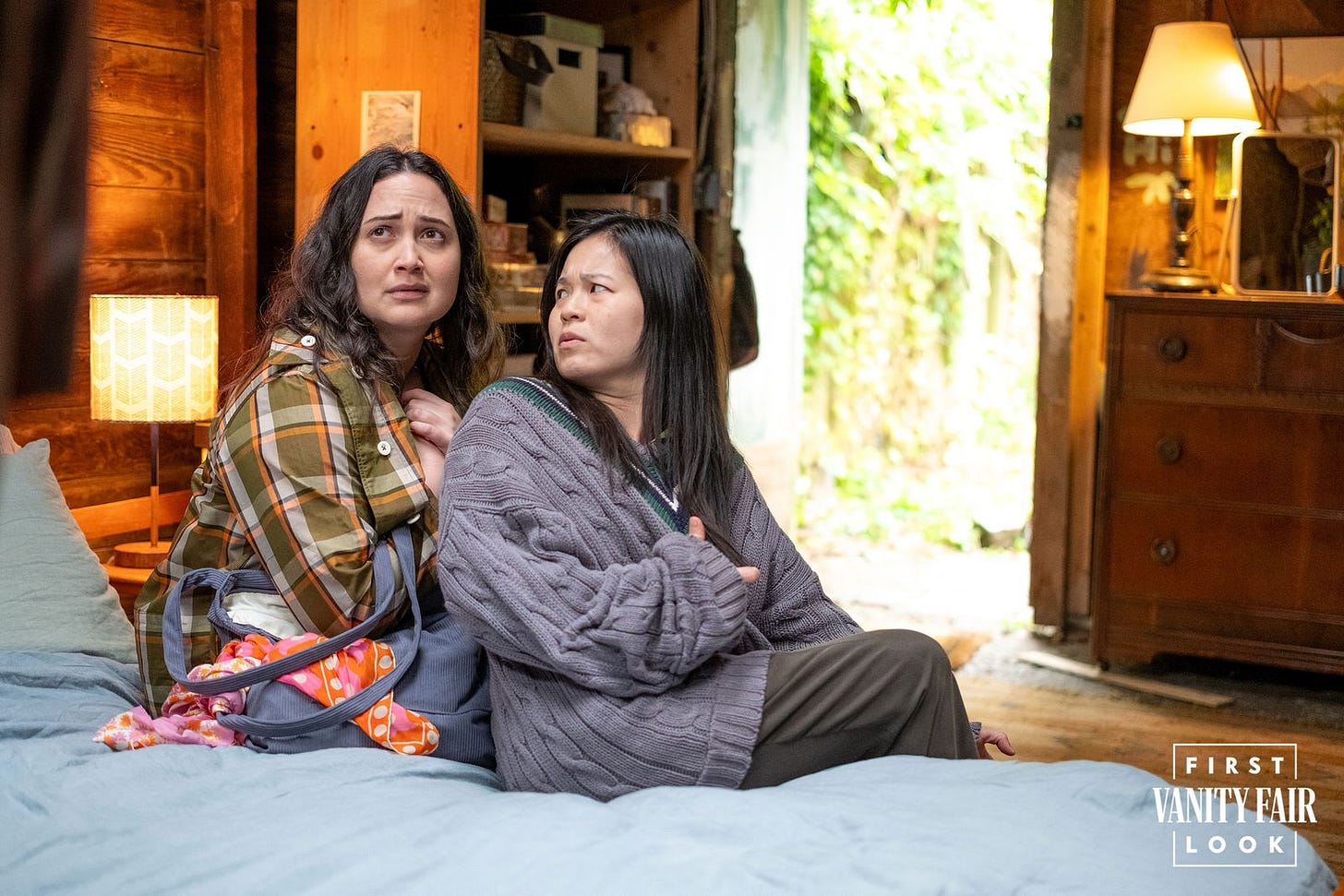Gaysian Rom-com April
Two romantic comedies centered on gay Asian Americans, "A Nice Indian Boy" and "The Wedding Banquet," hit theaters this month, bringing fresh takes to a well-worn genre.
Sometimes, movies that come out around the same time have coincidental similarities that beg for a comparison. As one example, this year, we’ve already seen four major films that feature male stars in dual roles: Michael B. Jordan as twins in Sinners, Robert Pattinson as clones in Mickey 17, Theo James as twins in The Monkey, and Robert De Niro as rival mob bosses in The Alto Knights. Back in the fall of 2023, I wrote about the parallels I saw between David Fincher’s The Killer and Martin Scorsese’s Killers of the Flower Moon, not in any shared genre or plot elements, but in the ways that they see their respective directors interrogate their own oeuvres.
This month, the urge to write a double feature review struck again as I realized two of April’s buzziest releases are both gay Asian American rom-coms: A Nice Indian Boy, directed by Roshan Sethi, and The Wedding Banquet, directed by Andrew Ahn. While Sethi’s film, written by Eric Randall and based on a play by Madhuri Shekar, follows a traditional rom-com arc with a meet-cute, honeymoon period, conflict, and a joyous reunion, the film fills out its specifics in an impressively unique and emotionally resonant manner. Meanwhile, Ahn’s film, while emotionally rich, is less fully realized, torn between honoring the 1993 Ang Lee original and forging its own path.
Within the canon of Asian American stories, the cultural divide between American-born young adults and their more traditionally-minded parents is a well-worn topic. Of all the territories where this divide might manifest, perhaps none is more emotionally charged than that of the Asian protagonist bringing home a non-Asian romantic partner. Indeed, this is where we meet Naveen (Karan Soni) at the start of A Nice Indian Boy. A shy young doctor, Naveen’s parents know and accept that he’s gay, but would prefer he bring home someone like, well, the film’s title.
When Naveen has a run-in with the handsome white photographer Jay (Jonathan Groff), we might think we know where this story’s going. Except that their encounter is at a Hindu temple, where both men are praying. And Jay’s last name is Kurundkar. As it turns out, Jay, though white, was adopted by an Indian American couple and shares plenty of cultural touchstones with Naveen, to a degree that humorously complicates the always awkward meeting of the parents.
Among these shared touchstones is Dilwale Dulhania Le Jayenge, also known as DDLJ, a beloved 1995 Bollywood romance starring the iconic Shah Rukh Khan. Naveen rolls his eyes at the film’s melodrama, but Jay embraces it in his dramatic overtures. Rather than the cultural divide or parental homophobia one might have expected, the story’s eventual conflict arises from Naveen’s emotionally closed-off nature clashing with Jay’s open-hearted earnestness, a dynamic elevated by raw, emotional performances from Soni and Groff. The script grants both men a nuanced interiority, making both sides understandable, if frustrating.
Beyond its central couple, A Nice Indian Boy uses Naveen’s family as crucial emotional touchstones. While he finds more acceptance from his exuberantly over-the-top mother Megha (Zarna Garg), Naveen realizes that in shielding off his feelings, he risks becoming too much like his father, Archit (Harish Patel). He also faces a strained relationship with his older sister, Arundhathi (Sunita Mani), who resents that Naveen’s sexuality was met with acceptance while she was given an arranged marriage. Randall’s script and Sethi’s direction give everyone’s feelings space to breathe through multiple heart-to-hearts, ultimately wrapping up in a conclusion that feels emotionally grounded while still shimmering with that DDLJ-level Bollywood glam and levity.
Speaking of 90s romance films that weigh upon current releases, it’s impossible to talk about 2025’s The Wedding Banquet without first discussing 1993’s The Wedding Banquet. Ang Lee’s original film centers on Wai-Tung (Winston Chao), a Taiwanese immigrant in New York City who, despite living happily with a white boyfriend (Mitchell Lichtenstein), marries Wei-Wei (May Chin), a struggling Chinese artist, to secure her a green card and placate his traditionally-minded parents. The film’s comedy of deception is intertwined with a rich cultural undercurrent about generational contrasts, the gap between Eastern traditions and the NYC gay scene, and the meanings of love– romantic, familial, and otherwise.
Ahn’s new film features a different setup, this time featuring two gay couples in Seattle: Min (Han Gi-chan), a Korean art student and scion to a multinational business empire, and his boyfriend Chris (Bowen Yang), alongside Angela (Kelly Marie Tran), a grouchy lab scientist, and her girlfriend Lee (Lily Gladstone), who’s struggling to conceive after multiple rounds of IVF. With Min’s student visa about to expire, he proposes to the commitment-phobic Chris, who says he’s not ready to commit. Instead, Min proposes to Angela, offering to use his trust fund wealth to pay for her and Lee’s IVF in exchange for helping him stay in the country.
Given these differences, it feels almost unfair to judge Ahn’s Wedding Banquet in comparison to Lee’s original film. But such a comparison is invited by the nature of a remake. Ahn’s film exists in an odd sort of gray zone; it’s far from a direct remake of the original, featuring different characters, a different setting, and a largely different plot and tone. But if it were promoted as an original film with a new title, it would be judged as oddly similar to the 1993 Wedding Banquet in its machinations.
Ahn’s film seems aimed at updating The Wedding Banquet for a more queer-friendly world. The sense of fear of those who wouldn’t accept them that pervaded Lee’s original is absent from this new edition. Angela’s gripe with her mother, May (Joan Chen) isn’t her (nonexistent) homophobia, it’s her overbearing, embarrassing enthusiasm to be an ally. It’s a valid, even honorable pursuit to update a quintessential queer story in this way. But with homophobia taken out of the picture, the film struggles to make its fake marriage scheme feel tense or even necessary. The only unaccepting character in the film is Min’s unseen grandfather– even Min’s grandmother (Youn Yuh-jung), built up as this film’s equivalent to Wai-Tung’s parents, embraces Min, admitting she’s long known he was gay.
In a film with less tension to its deception, Ahn’s film settles for drawing it from intense emotions. His Wedding Banquet is packed with stormy interpersonal conflicts zigzagging between nearly every character. Tran’s Angela, in particular, seems perpetually teary. But this somber mood threatens to undermine the film’s romantic aims. When you don’t know what these couples look like while happy, it’s hard to root for them as the stakes escalate.
Min and May are the only sources of comic relief, as if dropped in from a lighter, funnier version of the film that it sometimes shows glimmers of becoming. The pervading dour tone threatens the film’s status as a rom-com; it’s arguably a romantic drama. Underpinning this shift away from fun, the film doesn’t even feature the elaborate dinner referenced in its title, which Lee made both a source of raucous hilarity and tense cultural confrontation in his original. While this Wedding Banquet is refreshing in its character work and Ahn's gentle directing hand, it struggles to materialize fully as either an Ang Lee homage or as a bold new take.
While I have my obvious preference between these two films, they’re both worth a watch. What’s more, the increasing prevalence of such films, even ones I don’t love, may portend well for the future of moviegoing. Beyond their diverse representation, they both bring a genuinely new take to a well-worn genre, breathing life into what can so often be stale tropes.

